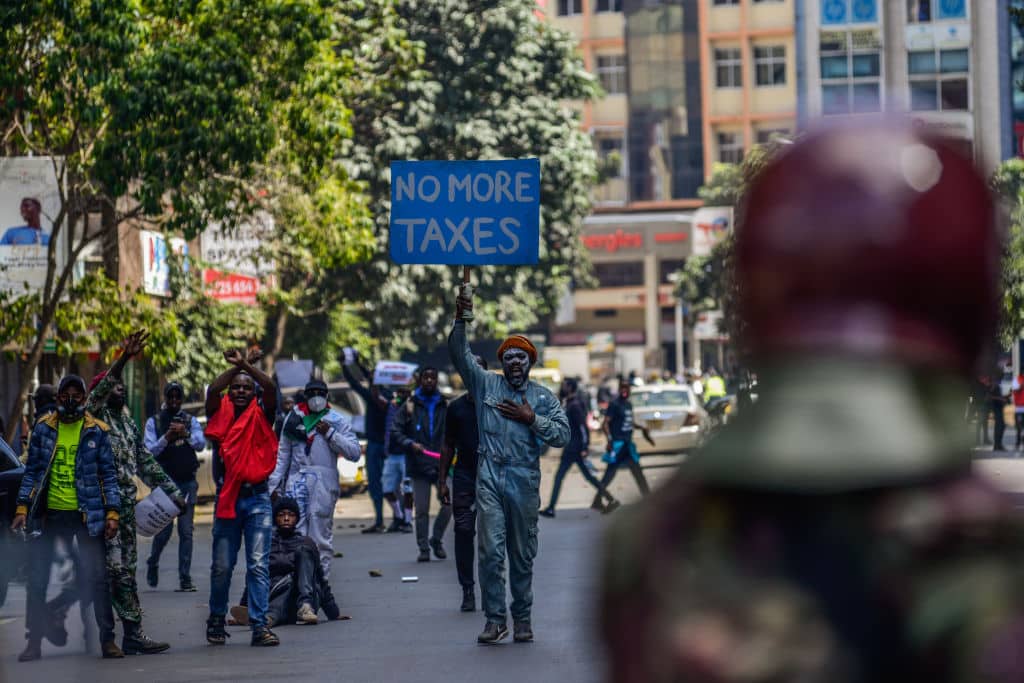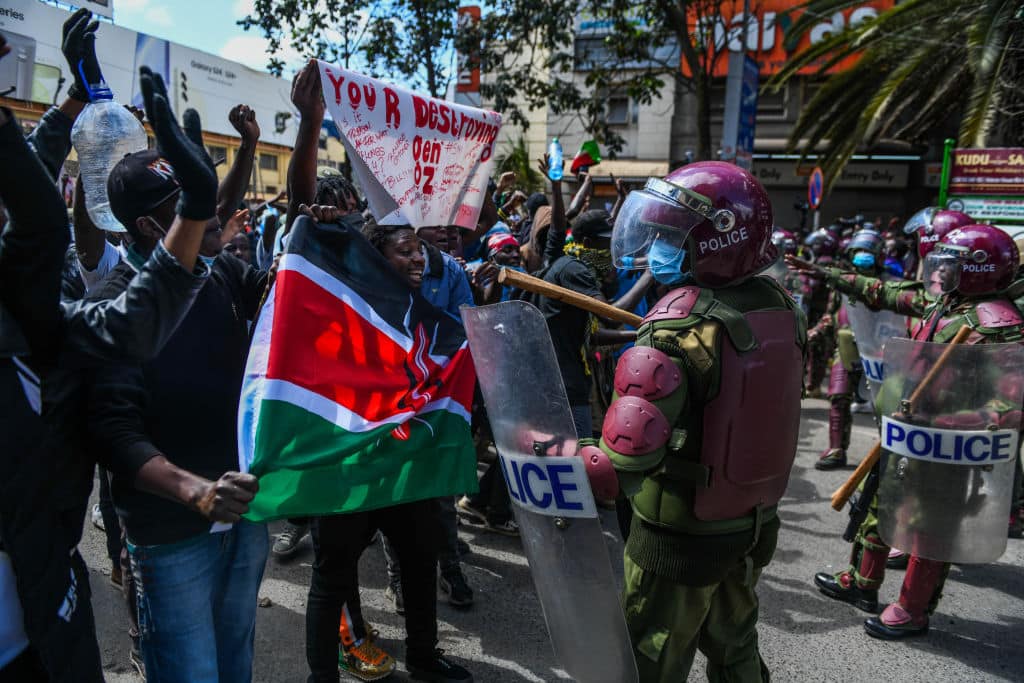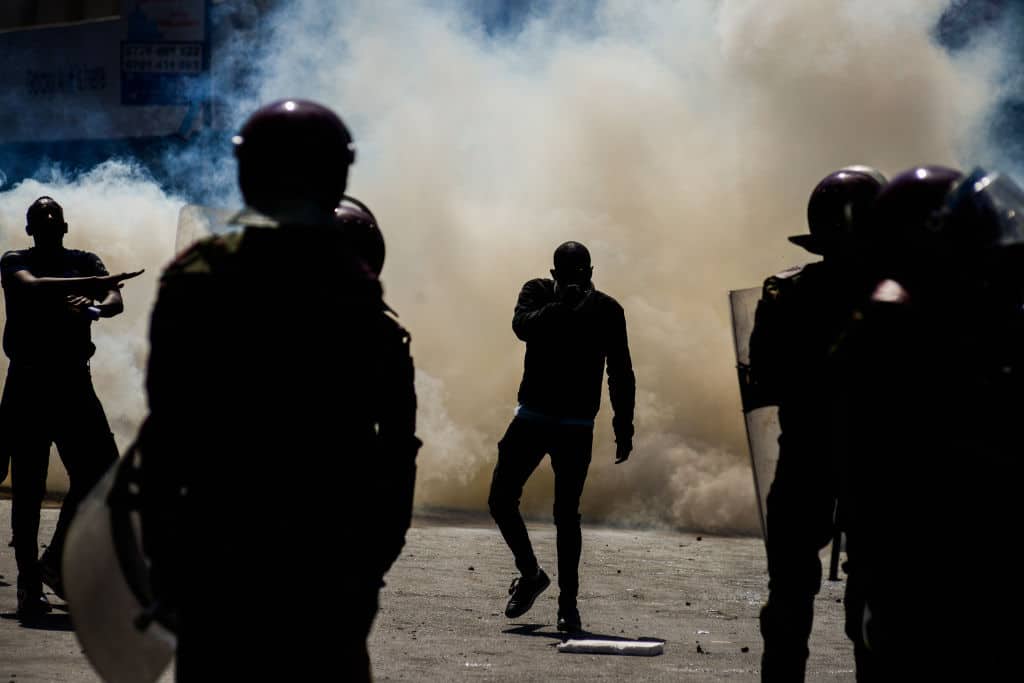Kenya’s President William Ruto has withdrawn the controversial Finance Bill 2024 in response to public outrage and mass demonstrations in the East African nation. In a statement this afternoon, President Ruto acknowledged the people’s concerns and emphasized the importance of addressing them to inform policy in the nation.
He stated, “I concede, I will not sign the 2024 Finance Bill.”
His speech began with gratitude to the MPs who voted in favor of the bill and an explanation of how the proposed taxes were designed to prevent debt distress.

“For every Sh100 we collect as taxes, we spend Sh61 servicing debt,” said President Ruto.
The decision follows a crisis that engulfed the nation on June 25, when protests against the new tax bill turned violent and demonstrators stormed Parliament and set it on fire, prompting the president to declare a state of emergency.
Loading...
In a press statement on Tuesday, the President said: “Today’s events mark a critical turning point in how we respond to grave threats to our national security. I assure the nation that the Government has mobilized all resources to ensure that a situation of this nature will not recur at whatever cost.”
Facts on the bill
In June last year, Kenya’s government had proposed a Finance Bill aimed at increasing Value Added Tax (VAT) and income tax, as well as introducing new taxes on previously exempt goods and services.
The bill seeks to raise an additional KSh346.7 billion ($2.7 billion) in revenue for the 2024/25 financial year, a 13% increase from the initial projection of KSh2.54 trillion ($19.6 billion) to KSh2.88 trillion ($22.3 billion) by broadening the tax base. This sparked widespread criticism, with many arguing that the tax hikes would harm several citizens and hurt the economy.
A year later, with the second review meeting a week away, the criticism escalated into mass demonstrations with thousands taking to the streets of Nairobi, disrupting traffic, vandalizing public property, and being tear-gassed by law enforcement.
In response, the government removed several contentious tax proposals from the bill, such as the VAT on bread, excise duty on vegetable oil, and taxes on sugar transportation and small businesses.
Additionally, VAT on financial services and foreign exchange transactions was removed, and the threshold for VAT registration was increased to exempt many small businesses, providing some relief to protesters.
However, to compensate for the lost revenue, new taxes were introduced. Excise duty was imposed on imported table eggs, onions, and potatoes to protect local farmers, while the cap on mobile money transfers remained unchanged. The fuel levy was significantly increased, along with the Import Declaration Levy and the Railway Development Levy on imports.
These changes were planned to generate substantial tax revenue, aiming to meet the targets set by Ruto’s administration to address sovereign debt and expenditure needs in line with the latest budget.

Harriet Afandi, a certified human rights consultant at USIDHR, criticizes the bill, stating, “The Finance Bill fails to support affordable maternal healthcare and ignores sexual and reproductive health rights, which will harm women and girls, particularly adolescent mothers; and lead to maternal deaths and complications.”
Synthia Asienwa, a Kenyan change leader, added, “The Finance Bill’s taxation of sanitary towels and potential scrapping of school feeding programs will harm Kenyan learners, especially girls and those with special needs, and is unacceptable.”
Amid ongoing protests, Kenya’s controversial Finance Bill 2024/25 had been passed by the National Assembly yesterday, garnering 195 votes in favor and 106 against, with three abstentions.
The announcement of lawmakers clearing the controversial bill further enraged protesters, leading to an attack on the Parliament with protesters trespassing the premises and setting part of it on fire. MPs and staff were evacuated under heavy security, allegedly through underground tunnels. The police opened fire; reports and videos of injuries and deaths have surfaced online and were acknowledged by the president in his statement, calling it a regrettable attack on the constitution.
Following the violence, the president was airlifted out of the statehouse to a more secure location due to rising security threats. The Kenya Defence Forces was deployed at the Parliament Avenue, and the nationwide emergency was declared.
Amidst this tension, various leaders continued to voice their opinions on the bill.
Billow Kerrow, the former chair of Kenya’s Finance & Budget Committee at the Senate, remarked, “So far, today’s demonstrations against the bill do not seem to bother the Government. However, it is likely they will adopt some changes and introduce new ones.”
Deborah Monari, a Kenyan change leader at the forefront of the protests, asserted, “The Finance Bill’s harsh taxes on essential goods will harm families and communities, and the government should prioritize the people’s needs.”
In less than 24 hours, a presidential address was organized and the news was circulated.
In the afternoon of June 26, in an unprecedented development, the Kenyan government bowed to public demands, with President Ruto withdrawing the Finance Bill 2024. Additionally, he has vowed to engage the public on their views and concerns to inform public policy as well as introduce cuts in government expenditure to re-align with the country’s tax policy.
“Going forward, how do we manage the affairs of the country together how do we manage our debt situation together work on the budget and deficits that now exists together, and as I committed last Sunday – I will be proposing an engagement with the young people of our nation, for us to listen to them, their ideas and concerns and what they think we should better as we go further. I also propose that equally president’s office and presidency, the parliament, judiciary and county governments working national treasury also undertake budget cuts and austerity to ensure that we do live within our means, reflecting the very loud message coming from the people of Kenya”
Loading...
